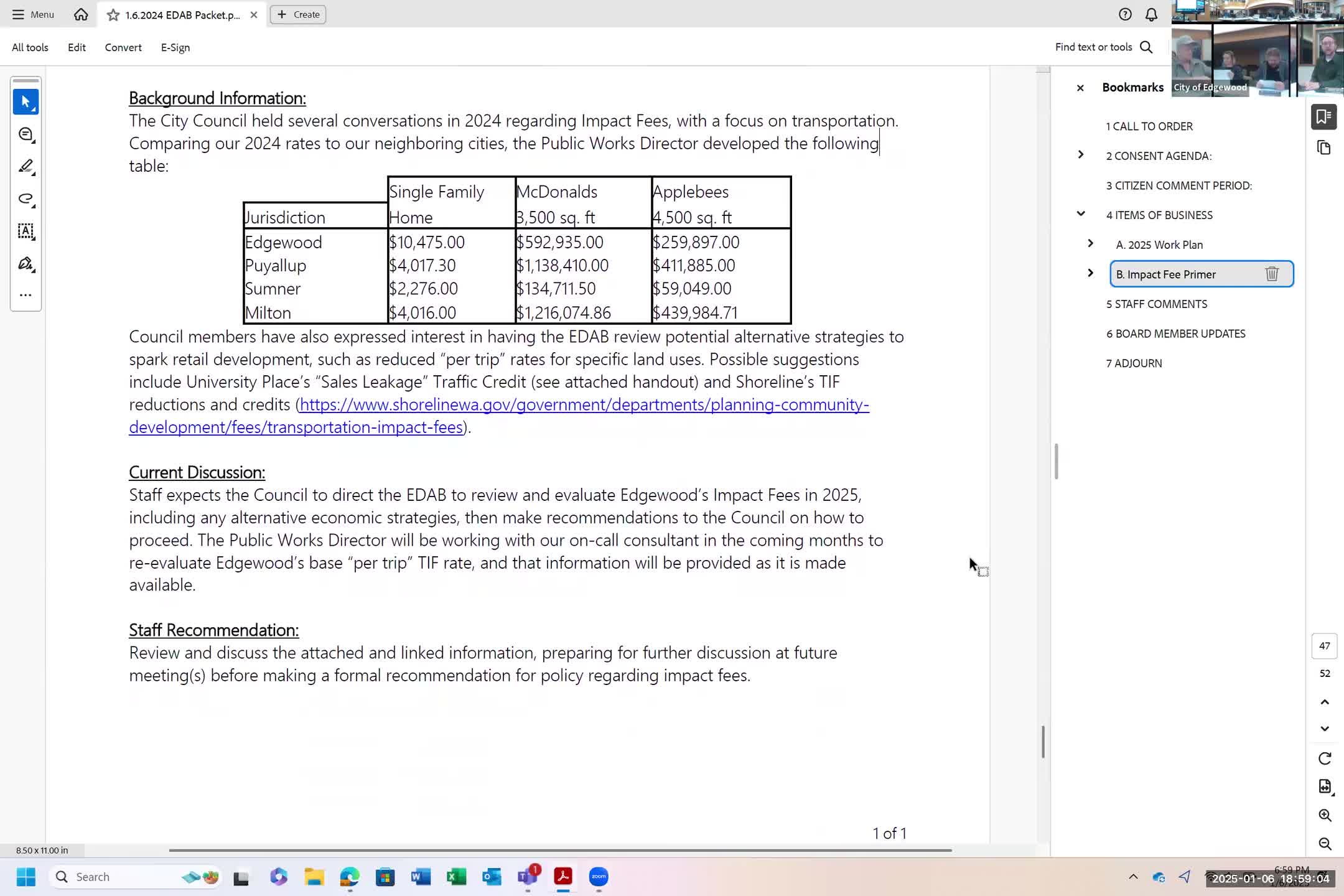Edgewood advisory panel weighs traffic impact fee changes to attract small businesses
Get AI-powered insights, summaries, and transcripts
Subscribe
Summary
City advisory board discussed Edgewood's $11,500-per-PM-peak-trip traffic impact fee, possible targeted reductions for desirable commercial uses and credit mechanisms tied to developer-built improvements.
The Economic Development Advisory Panel discussed Edgewood’s traffic impact fees and options to reduce or target them to encourage retail and restaurant development.
Panel members and staff focused on the city’s current per-trip charge — cited in meeting materials as about $11,500 per PM peak-hour trip in 2024 — and how that rate compares with nearby jurisdictions. Morgan, a staff member, said the fee is calculated by dividing the cost of planned transportation projects by projected new trips over a 20-year horizon and that the calculation uses Institute of Transportation Engineers trip-generation data.
“The purpose of the fee is for the initial construction and increase in capacity. We cannot use impact fees for ongoing maintenance or operations of anything,” Morgan said, explaining legal limits on how impact-fee revenue may be spent. Morgan also told the panel that impact fees are charged at the time of new development or certain change-of-use cases: “impact fees are developer fees. They're only paid at the time of a new personal development business going in.”
Panel members raised concerns that the high per-trip cost is a barrier for small restaurants and other modest commercial projects. Sean Olsen, a panel member, said the fee level could “kill” small retail or restaurant projects and urged the board to consider targeted reductions. Morgan and other staff described two policy paths: (1) changing the base fee calculation or project list that drives the fee, and (2) keeping the calculation but creating a differentiated schedule that assigns lower per-trip fees to specific land-use categories the city wants to attract (for example, grocery or sit-down restaurants) while leaving rates higher for uses the city does not wish to incentivize.
Staff noted existing mechanisms that can reduce a developer’s net obligation: if a development must build a capital improvement listed in the city’s capital projects (for example, a roundabout or local drainage work), the cost of that improvement can be credited against the impact fee. Morgan described the credit process as an option for a property owner who installs an eligible improvement directly.
Panel members asked for more detail and for examples of targeted schedules or rebate structures that would prioritize land uses that yield desired tax base or community benefits. The panel directed staff to prepare recommended lists of land-use codes to consider for reduced or exempt fees and to return to the panel with next-step policy options for referral to council.
Votes at a glance: The meeting’s procedural votes (consent agenda approval and adjournment) were approved unanimously during the session; no formal council-level policy change took place at this meeting.
What happens next: Staff said the public works director will recalculate impact-fee bases in coming months to reflect the city’s updated comprehensive plan and transportation project list; the panel indicated it will provide policy recommendations for council consideration before staff finalizes code changes.
